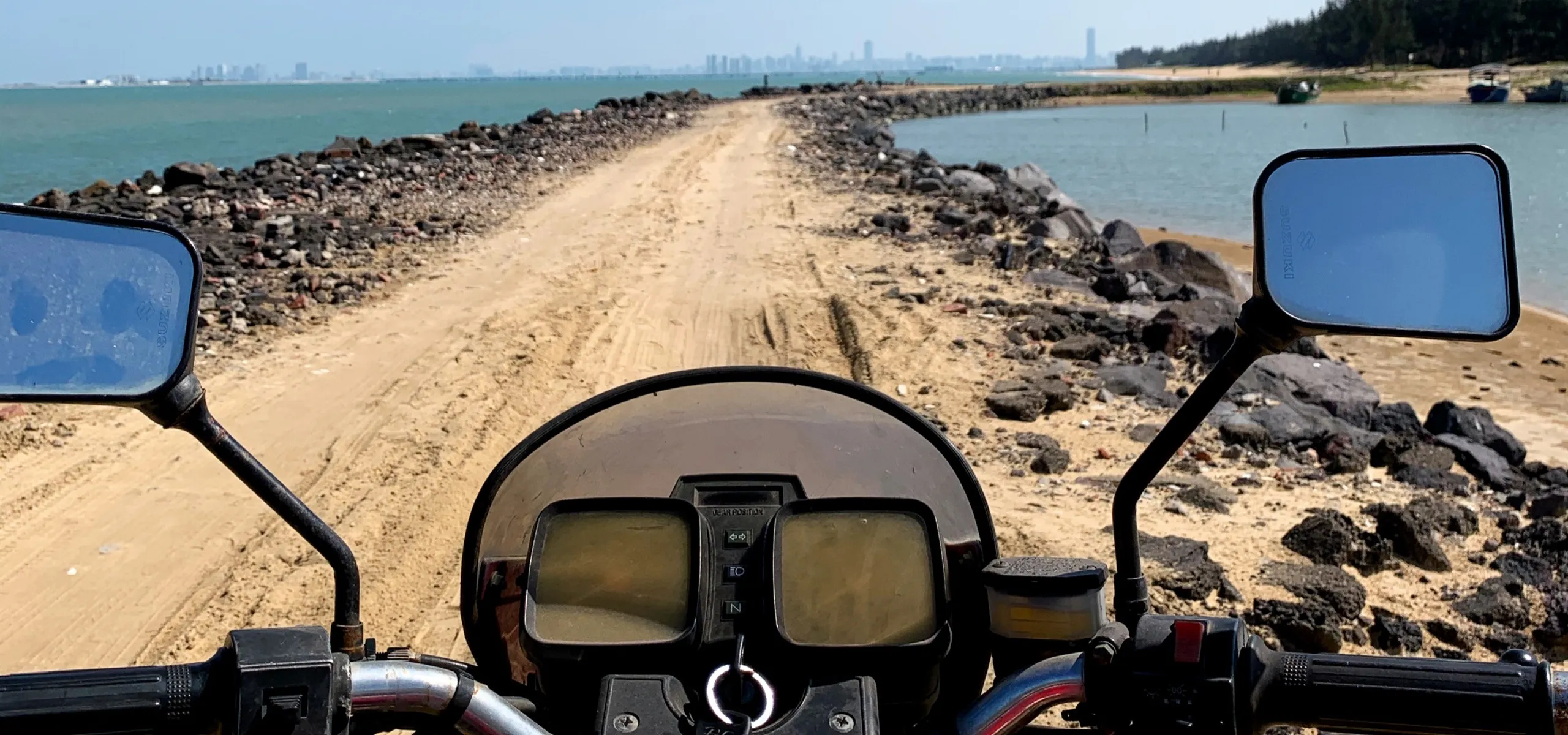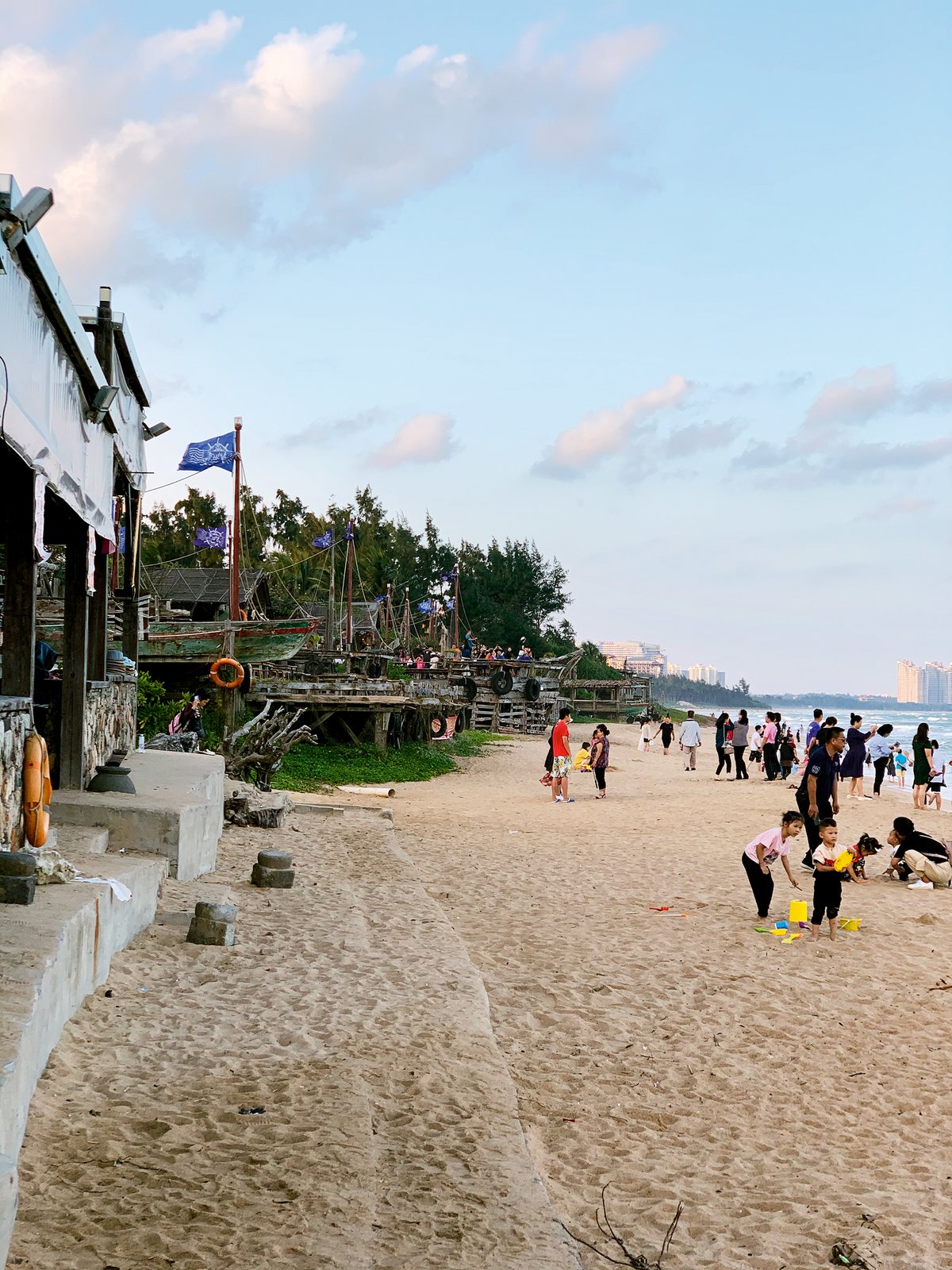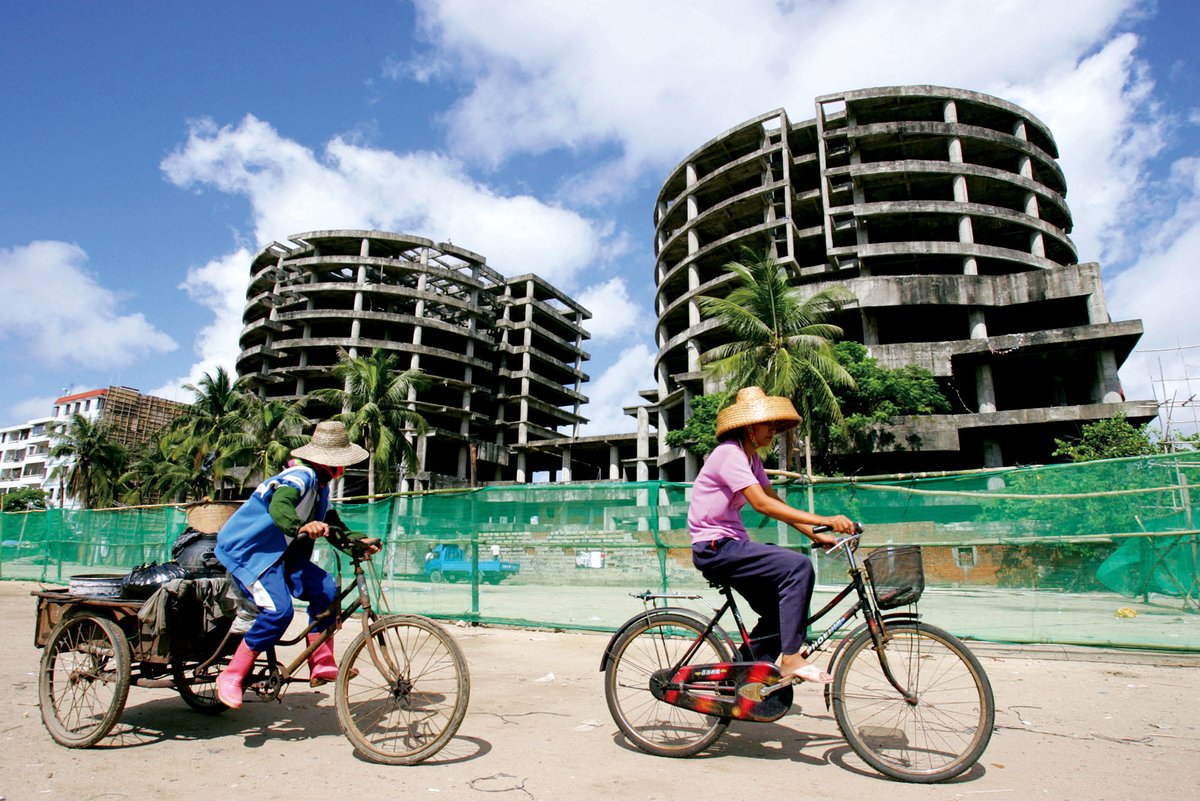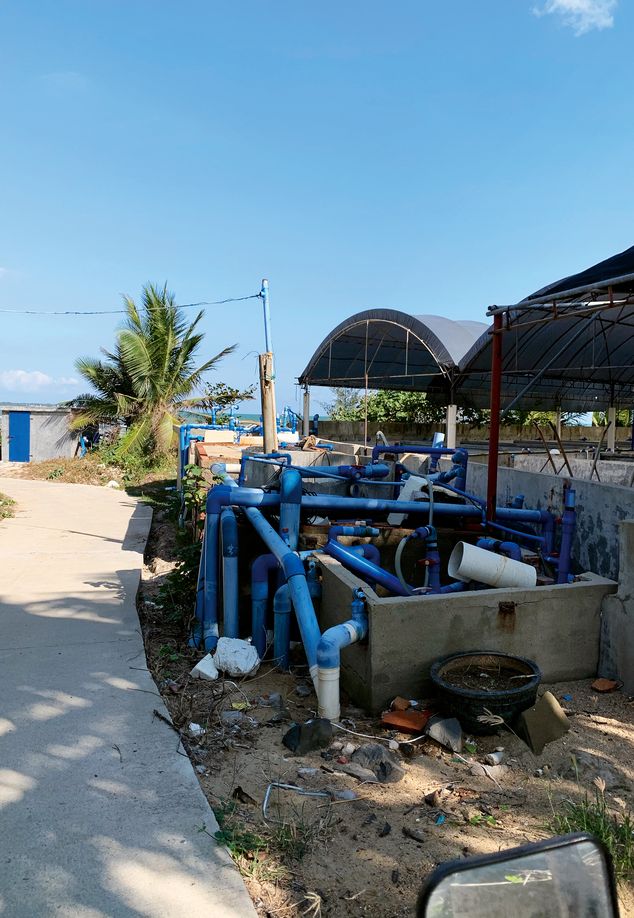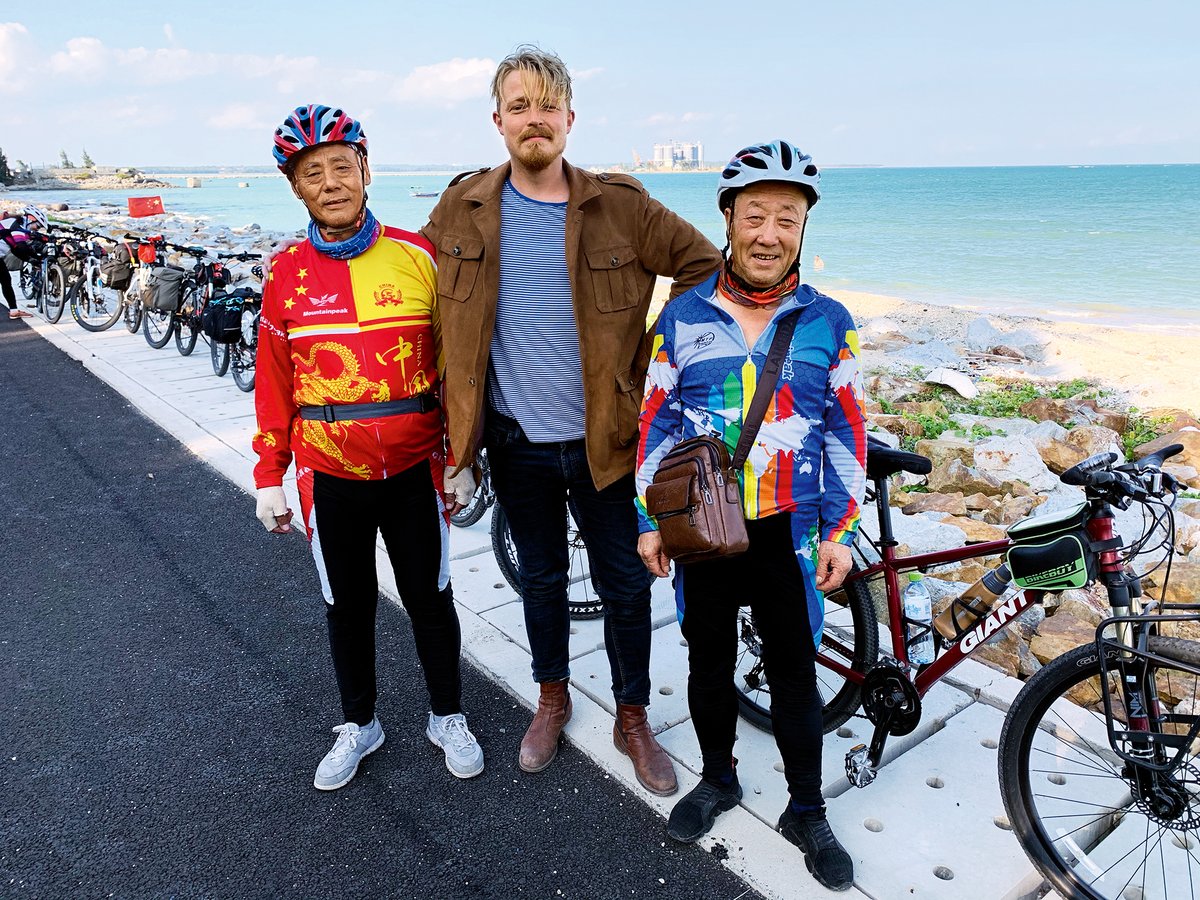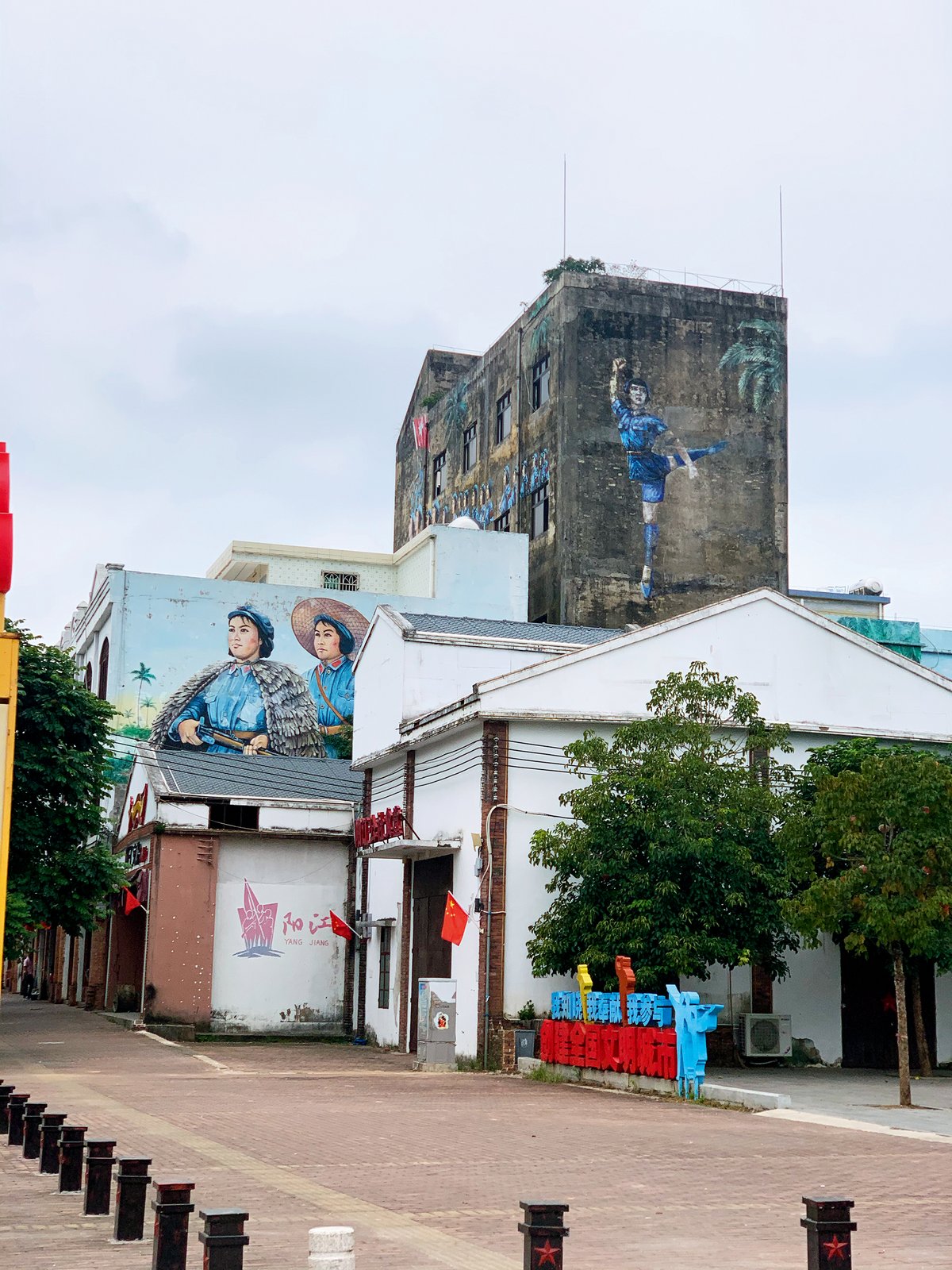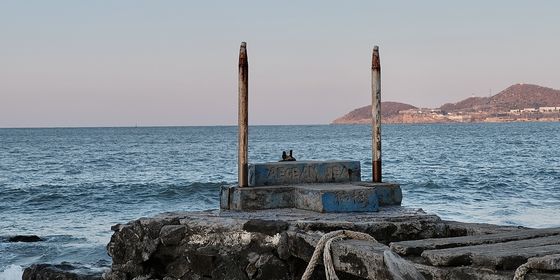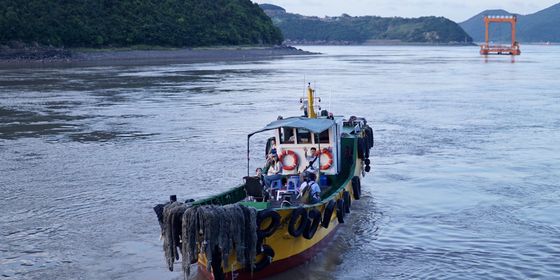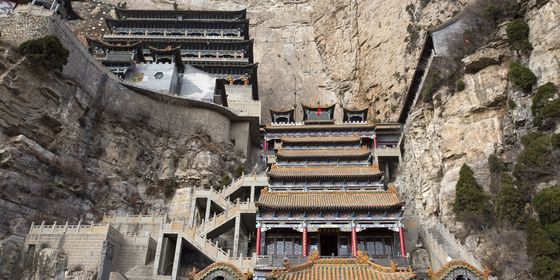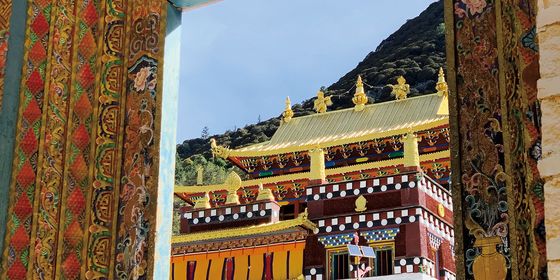Racing through Hainan’s back roads on a secondhand motorbike shows a different facet of the island
“A thousand kuai,” the seller says, while nervously scanning the roads left and right of the square in front of Haikou’s Wanda Plaza shopping mall. The secondhand Suzuki motorbike I’m hoping to buy from him is in battered condition, with a rusty tailpipe and defective ignition fuse, so I counter: “500.”
After he lets me take it for a spin, I realize the bike’s state is worse than I thought. I can hardly see the engine revolutions or the speedometer through plastic stained by what must have been years out in the Hainan sun, and after second gear, the digital gear number indicator burns out. I have to count in my head as I shift: “1, 2—accelerate!”
The bike is what’s known as a heiche (黑车, “black” vehicle), unregistered and likely to be taken off the road by traffic police if they cotton on to it (hence the owner’s nervous glances up and down the street). But I need to get moving, and reckon the two-wheeler will probably get me the almost-300 kilometers from Hainan’s capital, Haikou, to the southern holiday resort of Sanya. To be safe, I decide to pick an auspicious number for my final offer, and announce it dramatically: 888 yuan. The seller nods in agreement and scarpers, blocking me on WeChat as soon as he receives my transfer of the money.
Motorbike secured, I feel as though I’ve already witnessed a grittier side to the tropical island paradise than that which appears in the Hainan tourism board’s marketing. Before I arrived, my impression of China’s southernmost province consisted of pristine beaches, crystal seas, and controversial adverts by Haikou-based beverage company Coconut Palm which boasted that its coconut milk drink could increase women’s breast size. The government is promoting the province as an “international tourism island” with visa-free policies to attract overseas visitors, international film festivals, and round-the-world yacht races.
Now, I’m getting an inkling that there’s far more to the island than tropical tropes. I just hope my ropey, semi-legal bike will get me through the journey.
Beaches and shells
I drive off into the night, and soon Haikou gives way to the jungles of eastern Hainan. As the brightness of the city dims behind me, I realize that the lights on the motorbike are defective as well. “Heiche!” the guesthouse owner exclaims with a smile when I break for the night. “What a piece of junk!”
Breakfast on the road is instant coffee, from beans grown on two regions of the island; a fresh coconut, from trees that dot the roads throughout the tropical province; and Hainanese noodle soup with lime, a standard local fare. My mind still filled with images of a tropical paradise, I drive in search of that perfect beach—clean white sands, with swaying palm trees providing the only shade.
I zip through the jungle roads toward the city of Wenchang, the ancestral home of the powerful Song family who, among other descendants, boasted Song Qingling, honorary president of the PRC and wife of Sun Yat-Sen, the first president of the Republic of China; and Song Meiling, who married nationalist leader Chiang Kai-Shek. Today, the area is home to the Wenchang Space Launch Site, where China’s Tianwen-1 Mars rover was launched into space aboard the Long March Five rocket in July 2020 and the core module of China’s space station blasted off in April 2021.
I race past the city’s Confucius Temple before I reach the other side of the city limits and drive toward the shore. Empty concrete structures rise from the sandy ground, skeletons among the green foliage on the jungle’s edge.
Ever since China began to focus on domestic tourism in the early 2000s, the island has become a spearhead for the tourism industry, attracting more than 83 million tourists in 2019, and raking in some 105 billion yuan. Yet despite what the brochures will have you believe, tourism is not nearly the main engine of Hainan’s economic development, unlike many similar tropical paradises across Southeast Asia and the Pacific—at least not directly.
Diving into the ‘great’ seas
In the vegetation just behind the beach and fish farms, I find a temple that is nestled in between the palm trees. It is constructed with bricks, concrete, and colored tiles. Incense is slowly burning in front of a small shrine. To the left of the shrine is a sign filled with names of important donors—“Lin Youliang 10,000 RMB, Xiao Kaijiang 5,000 RMB…”— more than 140 names in total. I bow three times and place three incense sticks in front of the shrine, then make my way onward.
Finally, the road leads out of the jungle and runs along a small stretch of beach. There are no blue pipes to be seen anywhere. This is my chance, I think to myself.
I dive into the South China Sea and feel the salty waters swallow my body. As I get back on the shore, a small van has pulled up next to my motorbike. Two men are squatting in front of it facing the sea.
I greet them and one of the men hands me a cigarette—not of a local brand. They are both migrant workers from the west-central Chinese province of Sichuan, who have come to work on the tourism construction projects here. “I worked in the mainland for many years,” one of the men says, as the sound of waves crashing on the shore fills the air. “But I always dreamed of seeing what the sea was like. Only when I got the job at the construction site, I saw the sea for the first time in my life.”
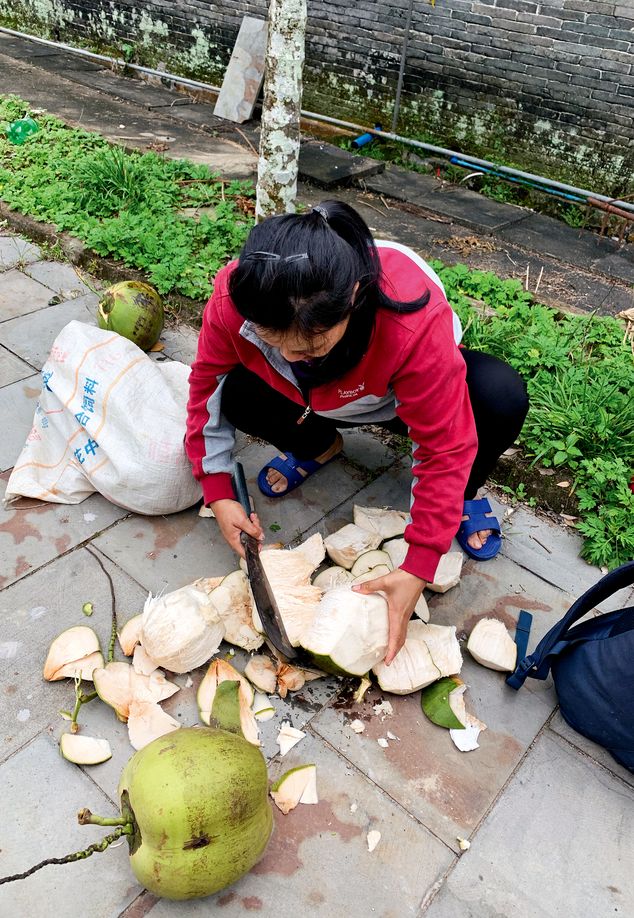
Mother Wang chops up coconuts with a small machete and generously insists that I bring them with me on my journey south—free of charge (Mads Vesterager Nielsen)
“Now we come here every day,” he continues, staring out at the wooden boats gently rocking on the other side of the cresting waves and beyond them, way out on the horizon, container ships carrying their cargo with steady speed toward markets and consumers all over the world.
Our appreciation of the awesome force and nature of the oceans is interrupted by a group of elderly men suddenly appearing out of nowhere on mountain bikes, clad in colorful lycra gear worthy of the Tour de France. “We’re retired cadres from Urumqi,” they tell me as we strike up conversation. “Now it’s our time to travel. We’re bicycling all around the island.” They organize a group photo with us with the precision and self-discipline you might expect from experienced officials used to arranging photo-ops, and continue on their way.
From the Sichuanese construction workers to the Xinjiang cadres, Hainan’s coasts and its booming tourism development draw all manner of people from landlocked regions on the mainland.
Since the start of the century, investors have rushed in at the heels of the tourists to get a piece of the boom, and many combine the two roles: Hainan has become a magnet of real estate development consisting of condos and resorts marketed to northern Chinese “snowbirds” as ideal vacation homes or retirement options, attracting 400,000 retirees per year according to The New York Times.
What has emerged is a cutthroat real estate market that leaves its share of casualties. Even before the Covid-19 pandemic, some projects have gone under before they are even completed, becoming the structures I would see repeatedly as I drive down the shore—shells of failed hotel projects that lost capital while being constructed, left on the beach to rot.
In Wenchang, just next to these relics of over-investment sits another concrete structure that belongs to history—an abandoned Japanese fortification from when the Empire of Japan occupied the island from 1939 to 1945. The entrance to the concrete bunker is almost entirely covered by sand, creepers, and leaves, but I brush them aside and pass through, using my phone’s flashlight to navigate through the narrow tunnel.
It’s shallow, and completely stripped of any equipment. Built in the early 1940s as part of an integrated defense system against invasion of the island by Allied forces, the structures remain in disrepair—a testament to the complex legacy of the war years. The history of the island is largely remembered in the public consciousness through popular depictions of revolutionary struggle, like the famous opera The Red Detachment of Women. The sun is blinding as I emerge from the cool and moist concrete enclosure.
Back on the motorbike, I head straight for the beach in the direction of the town of Boao, hoping to find the tropical utopia I imagined. Instead, I’m greeted with “NO SWIMMING!” signs at every entrance to the coast. As I drive along, I notice long blue pipes leading from small commercial fishing plots on the shore, disappearing into the sand before directly reappearing in the sea. Entering the driveway of one of the small fishing projects, I chance upon three men with sunglasses who are playing cards under the shade of a suspended tarp. One of the men gets up immediately.
“What are you doing here? Why did you come out here?” He barks the words at me. I suddenly become painfully aware of just how far away from the city I now find myself, and I jump back on the Suzuki and count in my head as I hit the gears: “1, 2—accelerate!”
Eventually, three small boys playing by the waterside enlighten me on the mystery of the pipes: “It is for the fish…the water goes in and the water comes out. Just like a fish tank.”
According to the UN, China produces more than half of all the farmed fish in the world. Mainly carp and tilapia from fish farms, just like these on the shores north of Boao. A concrete bridge leads out into the water—these aquaculture sites are often paired with fishing ports that provide transport for fish, machinery, and construction materials needed to sustain a large aquacultural production.
My expectations adjusted, I drive on in the hope of just finding at least somewhere I can take a dip in the sea.
Boao holiday and revolutionaries in the highlands
Boao, however, is mainly famous for bringing together political and business leaders from around the world to its annual summit, the Boao Forum. In this small town of 30,000 people, previously known for fishing and being the home of the itinerant “Tanka” boat families, Bill Gates, George Soros, and Christine Lagarde have all joined in the discussions on the future of development in Asia.
Rather than visit the halls of power at the exhibition center, though, I head through the side streets, past roadside stalls and slipper-wearing seniors, to enjoy fresh 10-yuan coconuts with sides of garlic marinated oysters, fried fish, and lotus cakes, available down at the beach. As dusk begins to fall, I race inland past the Red Detachment of Women Memorial, which commemorates perhaps the best-known revolutionary opera during the Cultural Revolution, set in Hainan’s Qionghai city.
The next morning, I set out for the mountainous center of the island, along copper-red roads beneath sandalwood and teak trees, where small cottages with old burned tiles dot the way. Villages in these highlands have motifs from The Red Detachment of Women painted all over the gables of the houses. One village square features three cut-outs of dancing soldiers.
By the side of the road a family wave me in. “Come see the exhibition of our family martyr,” the mother of the family says. They tell me they are descendants of Wang Wenming, a communist revolutionary leader who defeated a local warlord in the 1920s before dying of illness in 1930 at the age of 36.
Mother Wang, in her 60s, is the granddaughter of Wang Wenming. She shows me around the small museum her family has constructed for their illustrious ancestor, which is filled with teapots, chests, and a wooden chair—all belongings of old man Wang. “The local school is even named after our great-grandfather,” says one of Mother Wang’s sons proudly.
“I really must go,” I say, but Mother Wang insists that she provide me with food for my trip further southwest. Three coconuts and a plastic bag of lychees, classic Hainanese snacks.
The highland vegetation gets denser the further I move west. The map suggests I drive on the highway, even though motorbikes are usually prohibited from such roads in China. With no other options, I take my chances.
Hainan used to be a favored place for the imperial court to banish unwanted, criminal, or inconvenient government officials—a tropical hell. Su Dongpo (苏东坡), a Song dynasty poet, was exiled to Hainan in 1097, and after his arrival he wrote to his friend on the grim prospects of his life on the island. “Going to this savage island at such an old age, I am afraid I can’t return within my lifetime. When I left my eldest son this spring, I arranged my funeral and everything afterward.”
From up on the highway, looking down on the thick growth, one can easily imagine how remote, unwelcoming, and inescapable its jungles and beaches would have seemed for those sent thousands of miles south to live here in exile.
Snapping out of my historical reminiscence, I realize that I haven’t seen any other vehicles for a while—a bad omen. I drive on regardless, for if I turn around now, I will have to take a detour of more than 50 kilometers.
There’s a tent on the road, with a construction worker seated in front of it. He waves at me to stop, but I continue—I need to get to Sanya. Suddenly I find out the cause for the absent traffic: A fence blocks the road ahead, and beyond it, the middle section of the bridge is completely missing. Perhaps another concrete ruin from another unfinished development project?
I head back toward the tent, past where the construction worker who greets me with, “I told you so.” There’s only a small road leading down over the side of the highway and into the jungle. I ride it until it turns to concrete slabs.
After four days on the road, I reach Sanya as the dusk sets in and park my trusty motorbike by a parking lot on the beach. No blue pipes. The beach looks decent, though not as secluded as some others I’ve passed through—Sanya is the best-known tourist destination on the island, and a hotspot for northern Chinese trying to escape the cold in winter.
Here, it seems the booming tourism developments are doing just fine. Luxury hotels protrude from hills, offering excellent views of the South China Sea. Stalls on the beach promenade display souvenirs labeled in Chinese, Russian, and English to the myriad tourists who stroll back and forth under the autumn sun.
I gaze out over the sea, proud of the plucky Suzuki I bought in Haikou for getting me to my destination. It turns out 888 yuan will get you pretty far in China’s far south, I think to myself. Now I just have to sell it to someone else.
The Rough Side of China’s Tropical Paradise is a story from our issue, “Lessons For Life.” To read the entire issue, become a subscriber and receive the full magazine.





